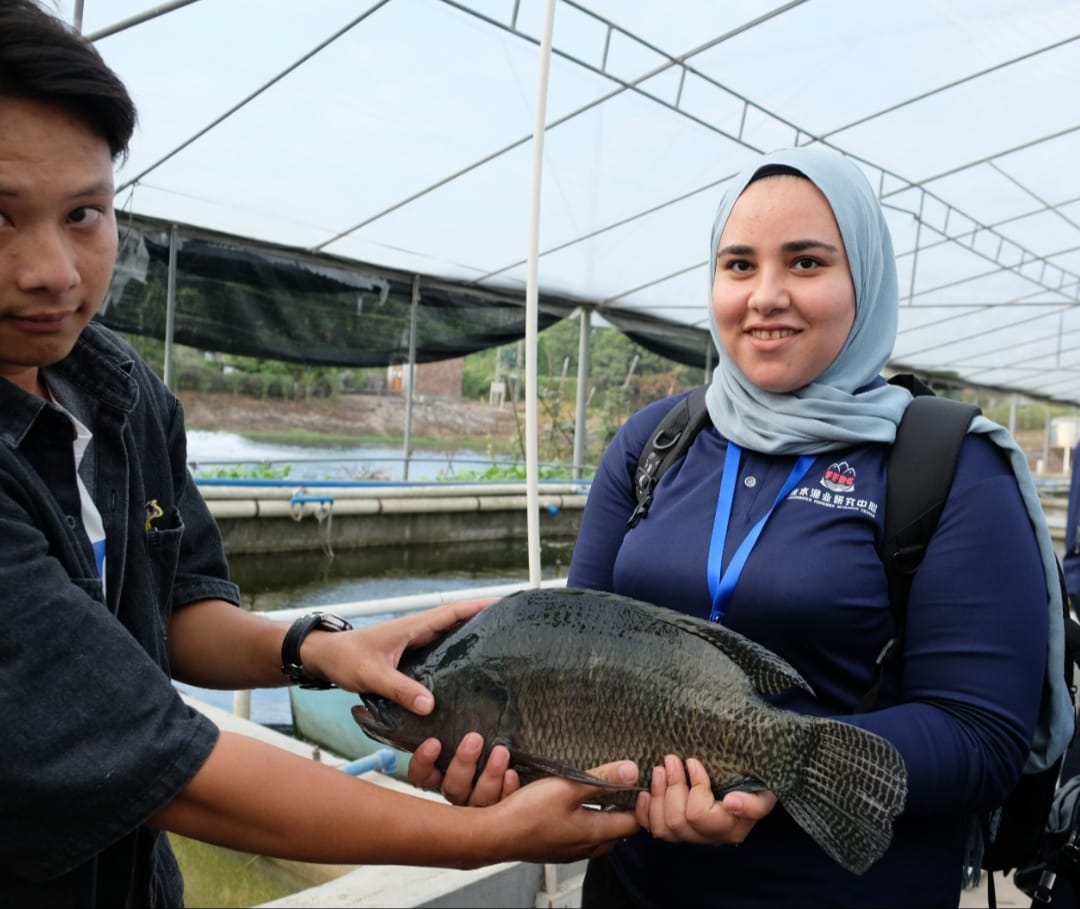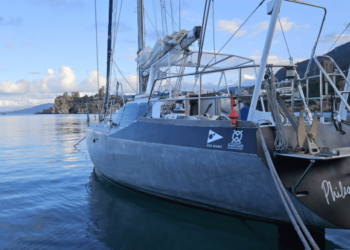Merna Salah: building a career in aquaculture through dedication, knowledge, and hands-on experience – The field of aquaculture is constantly evolving, driven by individuals who bring passion, curiosity, and resilience. Merna Salah’s work reflects a deep commitment to hatchery management, sustainable practices, and bridging scientific research with industry needs.
Salah’s professional growth has been shaped by continuous learning and international training. In 2024, she attended an intensive course at the Freshwater Fisheries Research Center in China, where she gained deeper insights into fish seed production and feed development. Her time at the Aller Aqua Egypt Factory and the Rice Research Center further strengthened her expertise in fish nutrition, refining her ability to optimize hatchery operations with a strong focus on private-sector needs.
One of Salah’s key contributions to aquaculture has been making scientific knowledge more accessible. In August 2024, she published Oysters and Their Hatching in Samak and A’laf, shedding light on advancements in shellfish breeding. Earlier the same year, her article Nanotechnology: can it solve the mystery of pollution in fish farms? in Alam Almal explored how nanotechnology can improve water quality in aquaculture systems.
Through these contributions, Salah has helped bridge scientific research with real-world applications, ensuring that industry professionals can apply emerging technologies and best practices effectively.
Hands-on expertise in hatchery management
Salah’s practical experience in hatchery management has been both extensive and impactful. At the Ibn Al-Nafis Hatchery, she was involved in breeding, spawning, and rearing various fish species, including tilapia, grey bream, and ornamental fish. Her focus on feeding strategies and water quality monitoring led to significant improvements in fish survival and growth rates.
Her research at the National Institute of Oceanography and Fisheries further strengthened her expertise in sustainable aquaculture. By studying Pangasius fish and biofloc systems, she explored ways to increase productivity without harming the environment, demonstrating that aquaculture can be both efficient and ecologically responsible.
Like many in the field, Salah has faced technical and logistical challenges. One of her most significant hurdles has been achieving 100% mono-sex fish seed production using hormonal treatments. Rather than relying solely on conventional methods, she explored natural alternatives, demonstrating her ability to think critically and adapt to industry needs.
She has also focused on improving hatchery performance, refining feeding routines and water quality monitoring, which has led to stronger, healthier fish stocks.
Breaking barriers in aquaculture: a vision for young professionals
Aquaculture is an innovative and evolving industry that demands dedicated, knowledgeable, and forward-thinking professional experts. It is a sector that thrives on research, application, and the ability to demonstrate real results with patience and commitment.
Young people with vision and determination play a crucial role in shaping the future of aquaculture, and their success stories serve as examples of how perseverance and expertise can break down barriers. This is particularly significant for young women and men entering the industry, proving that opportunities are built through study, effort, and practical contributions that engage with the private sector.
Gaining professional experience in a private aquaculture company is essential to truly understand the industry and its dynamics. A hatchery, in particular, provides a complex and enriching experience, offering valuable insights that shape an expert’s entire career.
This is what young professionals must recognize: aquaculture is a challenging field that requires dedication, sacrifice, and a willingness to start from the ground up. Working humbly and hands-on not only builds practical skills but also lays the foundation for a deep and comprehensive understanding of the sector.

Salah inspires women in aquaculture by proving that expertise and dedication drive innovation and sustainability. She knows that earning trust through results and reliability is key to leading change in the industry.
To young professionals, particularly women considering a career in aquaculture, Salah offers a clear message: believe in your abilities, stay persistent, and never stop learning. She highlights the importance of a strong educational foundation, hands-on experience, and the resilience to push through challenges. Confidence and expertise are the keys to success, and by building technical knowledge, networking with industry professionals, and developing leadership skills, the next generation can drive real change in aquaculture.
Merna Salah: building a career in aquaculture through dedication, knowledge, and hands-on experience









